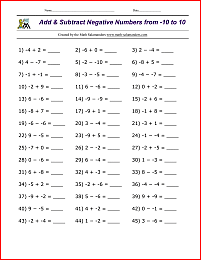5 Essential Tips for Significant Figures Calculations

Understanding the Importance of Significant Figures

Significant figures, often abbreviated as sig figs, play a crucial role in scientific measurements and mathematical calculations, especially when dealing with data derived from experiments or real-world measurements. Understanding and applying the rules of significant figures is not just an academic exercise; it ensures that the precision of your results is accurately conveyed, maintaining the integrity of the data. This blog post will guide you through 5 Essential Tips for Significant Figures Calculations, providing clarity and practical application for both students and professionals in various scientific fields.
1. Identify All Significant Figures Correctly

Understanding which numbers in a given value are significant is the foundation of mastering significant figures. Here's how you can identify them:
- Non-zero digits are always significant. For example, in 1.2345, all digits are significant.
- Zeros between non-zero digits (sandwiched zeros) are also significant. In 7004, the zero is significant because it's between 7 and 4.
- Zeros at the end of a number after a decimal point are significant. Example: 45.000 has five significant figures.
- Leading zeros in any number less than 1 are not significant; they merely indicate the position of the decimal point. For example, in 0.0058, only 5 and 8 are significant.
- Trailing zeros in numbers without a decimal point can be ambiguous, but they can be considered significant if they are followed by a decimal point (e.g., 400.) or if it's specified (e.g., 400±10).
🔬 Note: When writing measurements in scientific notation, all figures are significant. For example, 1.05 x 103 has three significant figures.

2. Apply Rounding Rules Consistently

Rounding is often necessary when dealing with significant figures, especially to reflect the precision of your measurements accurately:
- If the digit following the last significant figure is less than 5, the last significant figure remains unchanged. If it's 5 or greater, you round up.
- When rounding, consider the number of significant figures you aim to maintain:
- To round to three significant figures, 1.237 would become 1.24, but 1.232 would remain 1.23.
- Remember, round at the final step of calculation to avoid compounding errors in intermediate steps.
3. Perform Calculations with Significant Figures

The rules for performing calculations with significant figures differ depending on the operation involved:
Multiplication and Division:
The result should have the same number of significant figures as the factor with the fewest significant figures.
- If you multiply 2.3 (two sig figs) by 4.56 (three sig figs), the result should be rounded to two sig figs, yielding 11.
Addition and Subtraction:
The result should be rounded to the same precision as the least precise number in the calculation.
- Adding 11.01 (four decimal places) and 2.4 (one decimal place) results in 13.4.
🔬 Note: Precision here refers to the number of decimal places, not significant figures.
| Operation | Example | Result |
|---|---|---|
| Multiplication | 5.2 (2 sig figs) * 1.234 (4 sig figs) | 6.4 |
| Division | 9.45 (3 sig figs) / 2.0 (2 sig figs) | 4.7 |
| Addition | 5.6 + 2.300 | 7.9 |
| Subtraction | 5.60 - 2.3 | 3.3 |

4. Use Scientific Notation for Clear Precision

Scientific notation is an excellent tool for expressing large or small numbers while maintaining clarity about their precision:
- It ensures that trailing zeros are significant, eliminating ambiguity (e.g., 0.000234 can be written as 2.34 x 10-4, with three significant figures).
- Converting numbers to scientific notation helps in quickly identifying the number of significant figures.
5. Practice with Real-World Examples

Theoretical knowledge is important, but applying it to real-world scenarios solidifies understanding. Here are some examples:
- Chemistry: When measuring the volume of a liquid in a graduated cylinder, the uncertainty in the measurement dictates the number of significant figures. If the liquid level aligns with the 25 mL mark and you estimate between the 0.2 and 0.3 mL marks, you'd report the measurement as 25.25 mL (four significant figures).
- Physics: If you're measuring the time of flight in a projectile motion experiment and your stopwatch can measure up to 0.01 seconds, your times will be reported with two decimal places (and hence two or more significant figures).
🔬 Note: In practice, always keep in mind the precision of your measurement tools when deciding on significant figures.
Understanding and correctly applying significant figures in your calculations ensures that your work is precise, accurate, and reflects the confidence in your measurements. These rules are not just theoretical constructs; they have practical implications in the accuracy of scientific communication, the reproducibility of experiments, and the reliability of research findings. By following these five essential tips, you'll navigate the nuances of significant figures with ease and precision, enhancing both your understanding and the credibility of your scientific work.
Why are significant figures important in scientific research?

+
Significant figures ensure that the precision of measurements and calculations reflects the actual precision of the instruments used. This consistency is crucial for maintaining the integrity and reproducibility of scientific research.
Can you have too many significant figures?

+
Yes, reporting more significant figures than your measurement or calculation supports can falsely suggest a higher precision than what’s actually achievable, potentially misleading other researchers or misrepresenting the data.
How does scientific notation help with significant figures?

+
Scientific notation eliminates ambiguity about the significance of zeros, particularly trailing zeros, making it easier to determine the precision of a number at a glance.



